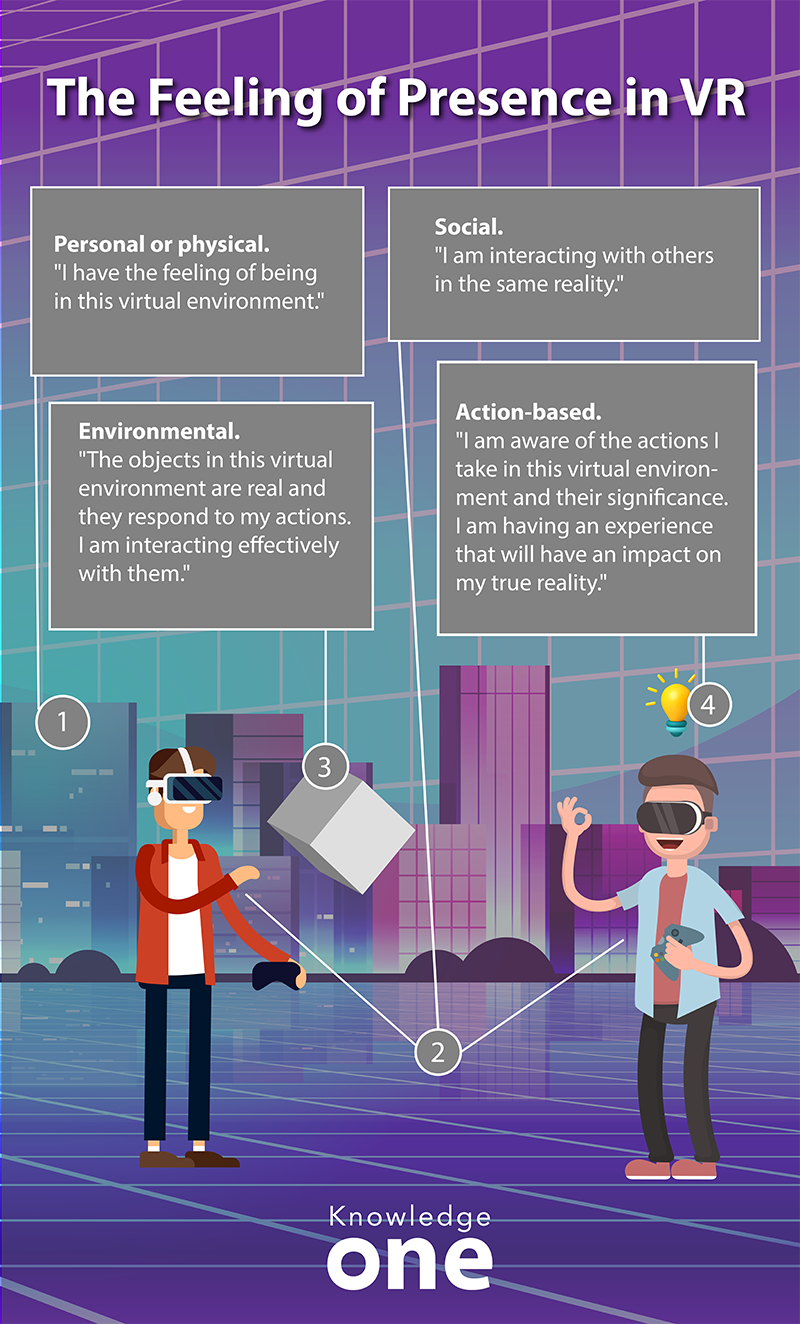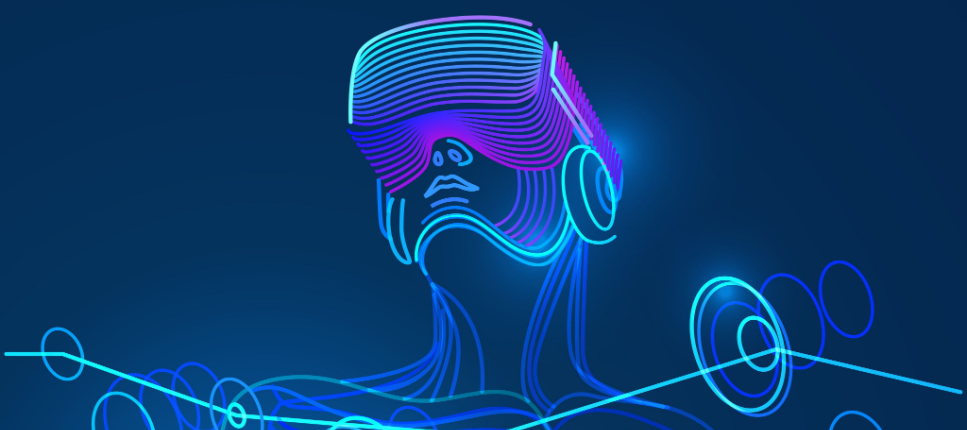In the immersive experience that virtual reality (VR) allows, “presence” can be defined as the authentic feeling of being in a world other than the one in which one is physically located. Even if some researchers propose nuanced versions of the notions of immersion and presence in VR, many tend to describe the first as the objective dimension of the experience, the one induced by the technological tools, and the second as its subjective dimension, the one constructed by the user. Presence in virtual reality has a double implication: it implies the existence of a place and that of a subject in this place. To better understand this notion, here are its four expressions.

In VR, the user experiences a feeling of presence called…
- Personal or physical. “I have the feeling of being in this virtual environment.”
- Social. “I am interacting with others in the same reality.”
- Environmental. “The objects in this virtual environment are real and they respond to my actions. I am interacting effectively with them.”
- Action-based. “I am aware of the actions I take in this virtual environment and their impact. I am having an experience that will have an impact on my true reality.”
Sources :
-
Le traité de la réalité virtuelle (Fuchs et al.)
-
Études : Heeter, 1992; Biocca, 1997; Bouvier, 2009.
Related articles:
- The fascinating potential of VR for medical training
- Mini glossary of artificial intelligence
- Neuroscience: learning in 4 steps
- 10 Advantages of Virtual Reality for Learning
- Virtual Reality 101
- Virtual and Augmented Reality: 8 uses within universities
- Meeting your learning objectives in XR
- Using Photogrammetry to Immortalize a Historical Landmark
- Artificial intelligence: from manual programming to deep learning
- Intelligent Adaptive Learning: Everyone’s Training!
- 4 Challenges for Education in the Digital Revolution Era
- [Case Study] Integrating Virtual Reality in Higher Education: The Faubourg à m’lasse
- Gamification in 3 questions
- Play and the Adult Learner: Test Your Knowledge!
- Is Having Fun in Higher Education the Way Forward?
- Adult Learners and Play: 5 Research Findings
Author:
Catherine Meilleur
Communication Strategist and Senior Editor @KnowledgeOne. Questioner of questions. Hyperflexible stubborn. Contemplative yogi
Catherine Meilleur has over 15 years of experience in research and writing. Having worked as a journalist and educational designer, she is interested in everything related to learning: from educational psychology to neuroscience, and the latest innovations that can serve learners, such as virtual and augmented reality. She is also passionate about issues related to the future of education at a time when a real revolution is taking place, propelled by digital technology and artificial intelligence.






